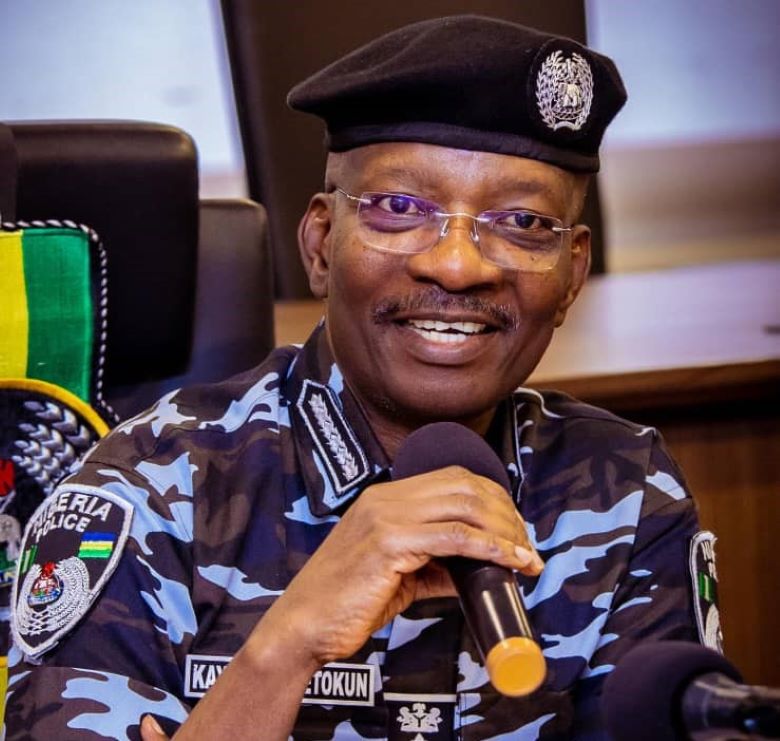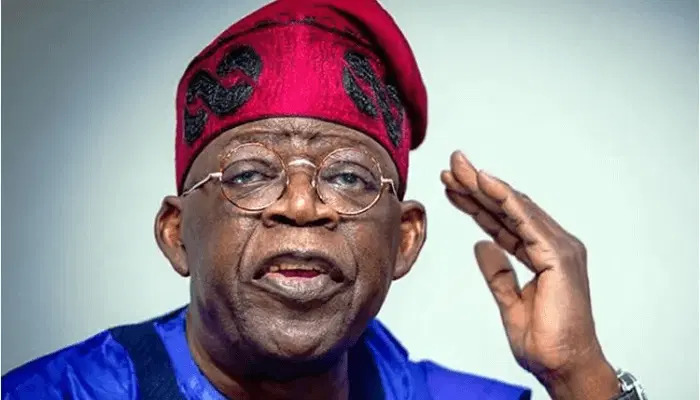Africa
Cybercrime in Nigeria: A Growing Threat to Digital Security and Economic Stability -By Usman Ali Yarima
International cooperation is another critical aspect of the fight against cybercrime in Nigeria. Cybercriminal networks often operate across borders, making it necessary for Nigeria to work closely with international law enforcement agencies such as INTERPOL and the FBI. Sharing data, expertise, and technological resources can help trace and dismantle transnational cybercrime syndicates. Additionally, adopting international best practices in cybersecurity can enhance Nigeria’s capacity to prevent and respond to threats effectively.

Cybercrime has emerged as one of the most pressing challenges facing Nigeria in the 21st century. With rapid technological advancement and widespread internet penetration, the country has witnessed a surge in online criminal activities that threaten individuals, businesses, and government institutions. The increasing dependency on digital platforms for financial transactions, communication, and data storage has provided cybercriminals with fertile ground to exploit vulnerabilities in Nigeria’s digital ecosystem.
The origins of cybercrime in Nigeria can be traced back to the early 2000s, when the infamous “Yahoo Yahoo” email scams became prominent. These scams involved fraudulent emails promising recipients large sums of money in exchange for small upfront payments or personal information. While many of these early scams were rudimentary, they marked the beginning of a more sophisticated era of cybercriminal activity. Over time, Nigerian cybercriminals have evolved from petty scammers to highly skilled hackers capable of carrying out complex cyberattacks.
One of the major drivers of cybercrime in Nigeria is unemployment, especially among youths. The lack of gainful employment opportunities pushes many young people to seek alternative means of survival, including online fraud. The glamorization of cybercrime in popular culture and social media further worsens the problem. Many fraudsters flaunt their ill-gotten wealth, creating a dangerous perception that cybercrime is a legitimate path to success. This social acceptance of fraudulent behavior has eroded moral values and encouraged more people to engage in cybercrime.
The economic impact of cybercrime on Nigeria is severe. According to various reports, the country loses hundreds of millions of dollars annually due to online fraud and digital theft. Businesses face financial losses, reputational damage, and reduced customer trust, while the government loses revenue that could have been used for development. Furthermore, cyberattacks on banks and financial institutions disrupt the stability of the financial sector, making investors wary of Nigeria’s digital economy.
Another area heavily affected by cybercrime is national security. Hackers have targeted government websites, critical infrastructure, and databases containing sensitive information. These breaches compromise the integrity of government systems and could be exploited by foreign entities or terrorist organizations. The inability to safeguard national data poses a threat not only to Nigeria’s internal stability but also to its international reputation as a secure place for digital investment.
The evolution of cybercrime techniques in Nigeria is alarming. Beyond traditional email scams, criminals now employ phishing attacks, identity theft, ransomware, and online impersonation. Social media platforms are increasingly used to deceive victims, while cryptocurrency has made it easier for criminals to conceal and transfer stolen funds anonymously. The rise of the “Yahoo boys” and “Yahoo Plus” culture, where cybercrime is allegedly linked with ritual practices, underscores the extent to which the phenomenon has infiltrated social and moral systems.
The Nigerian government has made notable efforts to curb cybercrime. The enactment of the Cybercrimes (Prohibition, Prevention, etc.) Act of 2015 was a significant step in establishing legal frameworks to prosecute offenders. The Economic and Financial Crimes Commission (EFCC) has been instrumental in arresting and prosecuting cybercriminals. However, enforcement remains inconsistent, and many offenders continue to escape justice due to corruption, inadequate resources, or poor coordination between agencies.
Law enforcement agencies also face the challenge of keeping pace with the fast-evolving nature of cyber threats. Cybercriminals often operate across borders, using encrypted networks and sophisticated technologies that are difficult to trace. Nigeria’s limited cybersecurity infrastructure and lack of specialized personnel hinder effective investigations and prosecutions. There is a pressing need for the government to invest in digital forensic tools and international collaborations to enhance its capacity to combat cybercrime.
Education and awareness are crucial in addressing the root causes of cybercrime. Many Nigerians fall victim to online scams due to ignorance about cybersecurity practices. Schools, universities, and organizations should incorporate digital literacy and cybersecurity education into their curricula and training programs. This will not only protect potential victims but also steer young minds away from viewing cybercrime as an attractive career path.
The private sector also has a role to play in combating cybercrime. Financial institutions, telecommunication companies, and technology firms must strengthen their security systems to prevent breaches. Collaboration between public and private sectors is essential in developing effective cybersecurity strategies, sharing intelligence, and responding to cyber incidents promptly. Such partnerships can create a more resilient digital environment capable of deterring criminal activities.
International cooperation is another critical aspect of the fight against cybercrime in Nigeria. Cybercriminal networks often operate across borders, making it necessary for Nigeria to work closely with international law enforcement agencies such as INTERPOL and the FBI. Sharing data, expertise, and technological resources can help trace and dismantle transnational cybercrime syndicates. Additionally, adopting international best practices in cybersecurity can enhance Nigeria’s capacity to prevent and respond to threats effectively.
In conclusion, cybercrime in Nigeria is a complex and multifaceted issue that threatens national development, economic growth, and social stability. While progress has been made through legislation and enforcement, more comprehensive strategies are required to address the root causes. Investments in education, technology, and law enforcement capacity, combined with strong ethical reorientation, can help reduce the incidence of cybercrime. Ultimately, the fight against cybercrime demands collective responsibility—from the government, private sector, and citizens—to secure Nigeria’s digital future and restore its reputation as a trustworthy participant in the global digital economy.
Usman Ali Yarima Student of mass communication Kashim Ibrahim University, Maiduguri

























